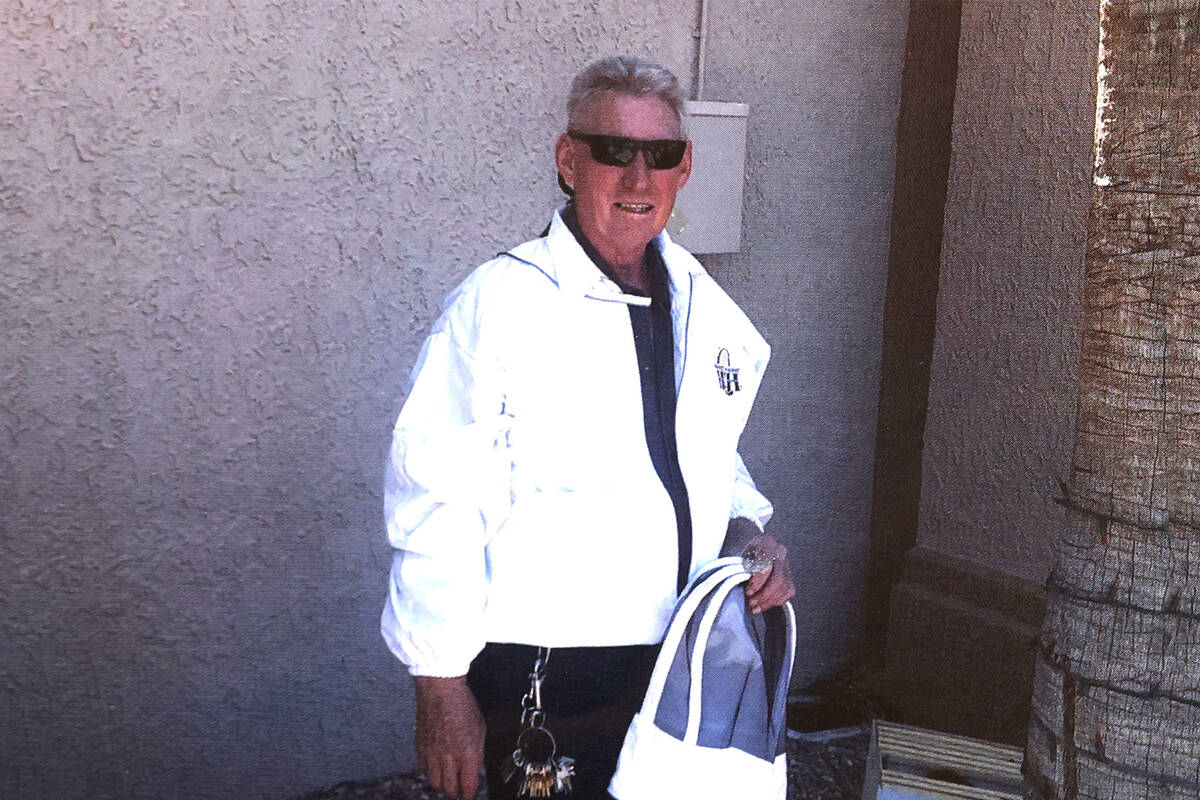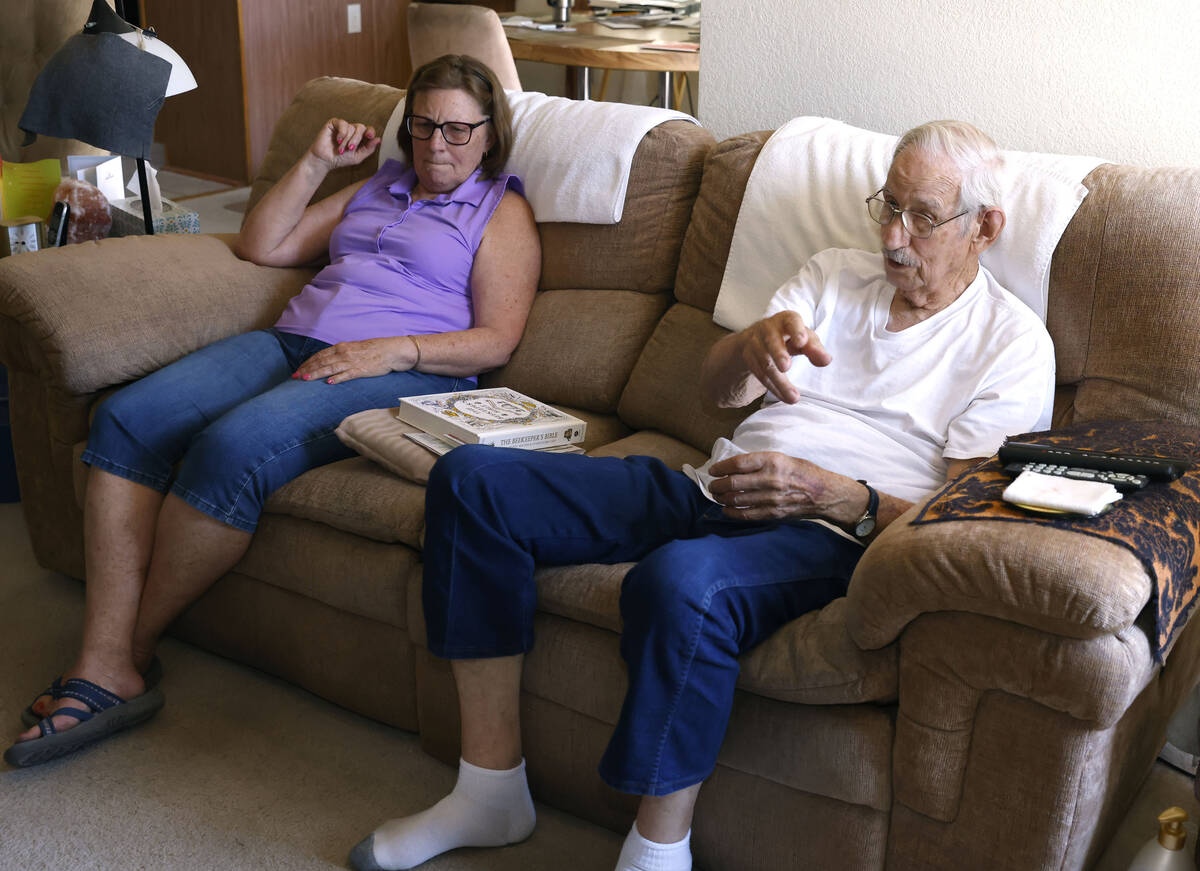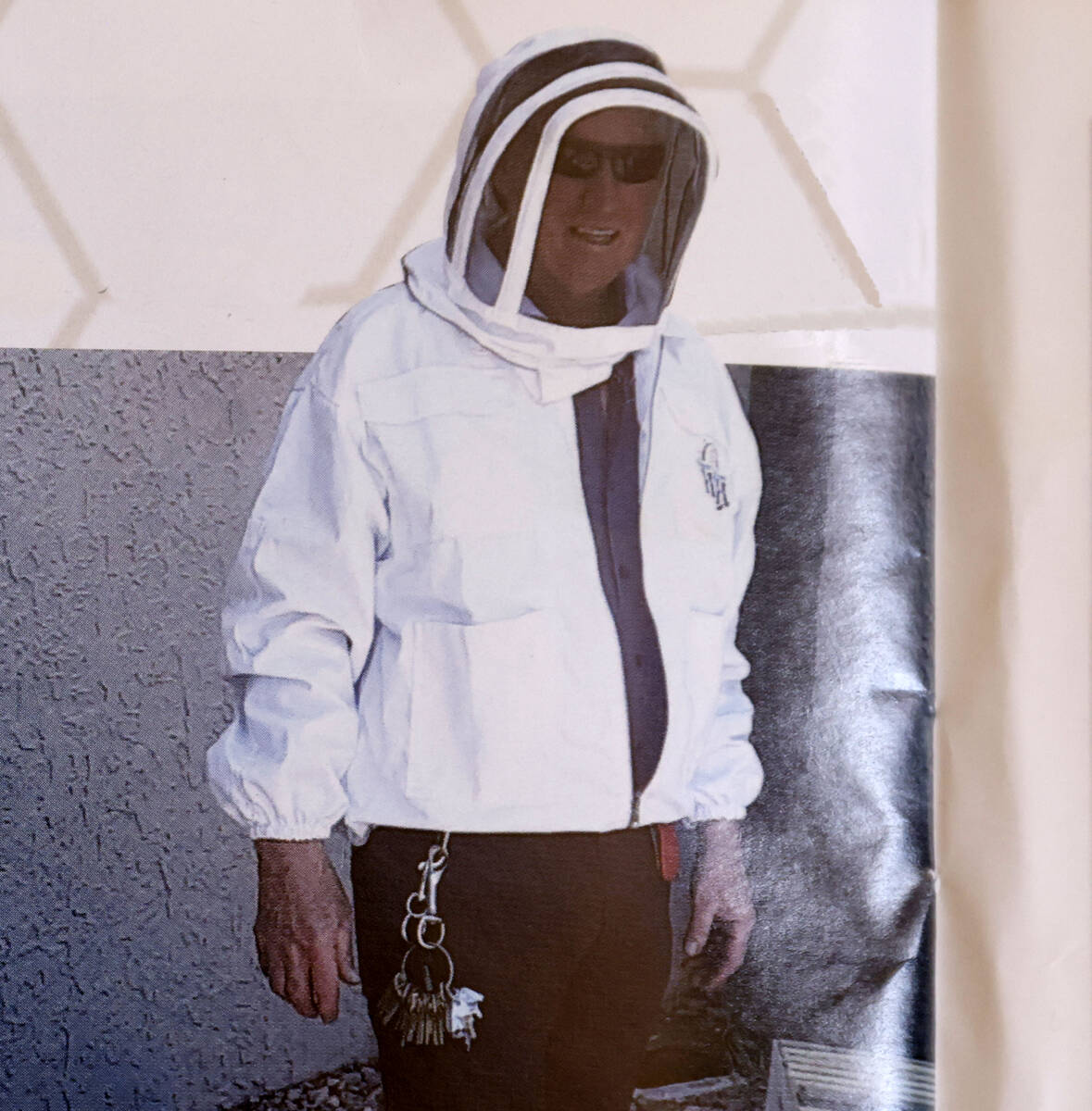The coroner says beekeeper Scott Stromme died of natural causes. His family isn’t so sure.
Las Vegas resident Scott Stromme’s cell phone has been ringing a lot in recent weeks, but it’s been his younger sister Kim Masias who’s been the one answering his calls.
Many of the attempts to reach Stromme at first were presumably from friends or coworkers at Sun City Summerlin, Masias said. Though the calls have slowed as of late, Masias still fields an occasional call for her brother, with the person on the other end unaware of the fact Stromme was found dead in his home on May 10. He was 67.
Whether it was gardening, roller skating, or even around-the-house handy work, Stromme was the type of guy who knew “a lot about a lot,” family members recently told the Las Vegas Review-Journal. One of those hobbies included beekeeping, which Stromme got into nearly a decade ago, according to Scott Stromme’s 90-year-old dad, Phillip Stromme.
“If something sounded exciting, he’d be the first in line and had to go check it out,” said Phillip Stromme. “If the people he worked with decided they were going to go to the bar and have a beer, he was first in line. He would try anything.”
Phillip Stromme said his son never worried about the safety risks associated with caring for live bees. And that’s exactly why Phillip Stromme was in disbelief when he discovered his son unresponsive inside his home in the 4100 block of Broadriver Drive.
The Clark County coroner’s office on Thursday ruled that Stromme died naturally from a combination of heart disease and emphysema. But Phillip Stromme and Masias wonder if the coroner got it wrong.
‘I was still finding bees’
Initially there to help Scott Stromme set up a yard sale, Phillip Stromme entered through an open back door just after 7 a.m., according to a Metropolitan Police report, and immediately called for emergency services upon seeing his son’s condition. Arriving officers found Scott Stromme sitting in a living room chair, slightly slumped to the left, and pronounced him dead at the scene.
When Phillip Stromme found his son, Scott Stromme was wearing a complete beekeeper’s outfit — without the headpiece and a glove, both of which were found nearby — and Scott Stromme’s face was severely swollen. Police noted in their report that paramedics suggested Scott may have died due to an allergic reaction by the stings, and reported seeing several beekeeping tools out along with a large number of dead bees inside and out of the property. Pill bottles containing allergy medication were also found nearby, according to Masias.
A professional beekeeper was called to the property, and the surviving bees were taken away. Stromme’s family said the man who picked the bees up identified them as Africanized, which experts say are more aggressive and tend to swarm more frequently than other honey bee species, and have been given the moniker “killer bees,” since their arrival to the U.S. in the 1990s.
“When we were there still cleaning up stuff, I was still finding bees around,” Masias said. “The honey bees that he normally had would just fly around the hive. They didn’t bother people at all.”
Adrian Fisher, an assistant professor of life sciences at Arizona State University who specializes in environmental stressors that affect insect pollinators, said Africanized bees are common to encounter in warm-weather states across the South and Southwest.
But they are typically only found in the wild and are not sought after by beekeepers typically because they produce less honey compared to European honey bees, Fisher said.
“A lot of beekeepers actively try to keep Africanized colonies outside of their apiary or the intermixing between feral Africanized colonies and their managed colonies,” Fisher said. “Whether they’re Africanized or European bees, there is always a risk because they are animals and they have instincts and minds of their own.”
‘He got along with everybody’
According to a 2023 profile about Stromme featured in Sun City’s Link Magazine, he was hired in 2018 as a maintenance worker and on multiple occasions would retrieve hives that were reported by residents. He would then attempt to re-home the bees to his home in hopes they would help pollinate his garden.
Though no colony was in Stromme’s possession permanently, some were in place for years.
“Scott loves working with bees,” the article states. “There are times when bees pose a menace to the community and Scott steps in to save the day!”
A small memorial was held for Stromme May 24, and no further services are planned, Phillip Stromme and Masias said. A veteran of the Army Corps of Engineers and west Michigan native, Scott Stromme is survived by his father, sister and brother-in-law Fred Koola.
“He got along with everybody,” Phillip Stromme said.
Contact Casey Harrison at charrison@reviewjournal.com. Follow @Casey_Harrison1 on X. or @casey-harrison.bsky.social on Bluesky.
























